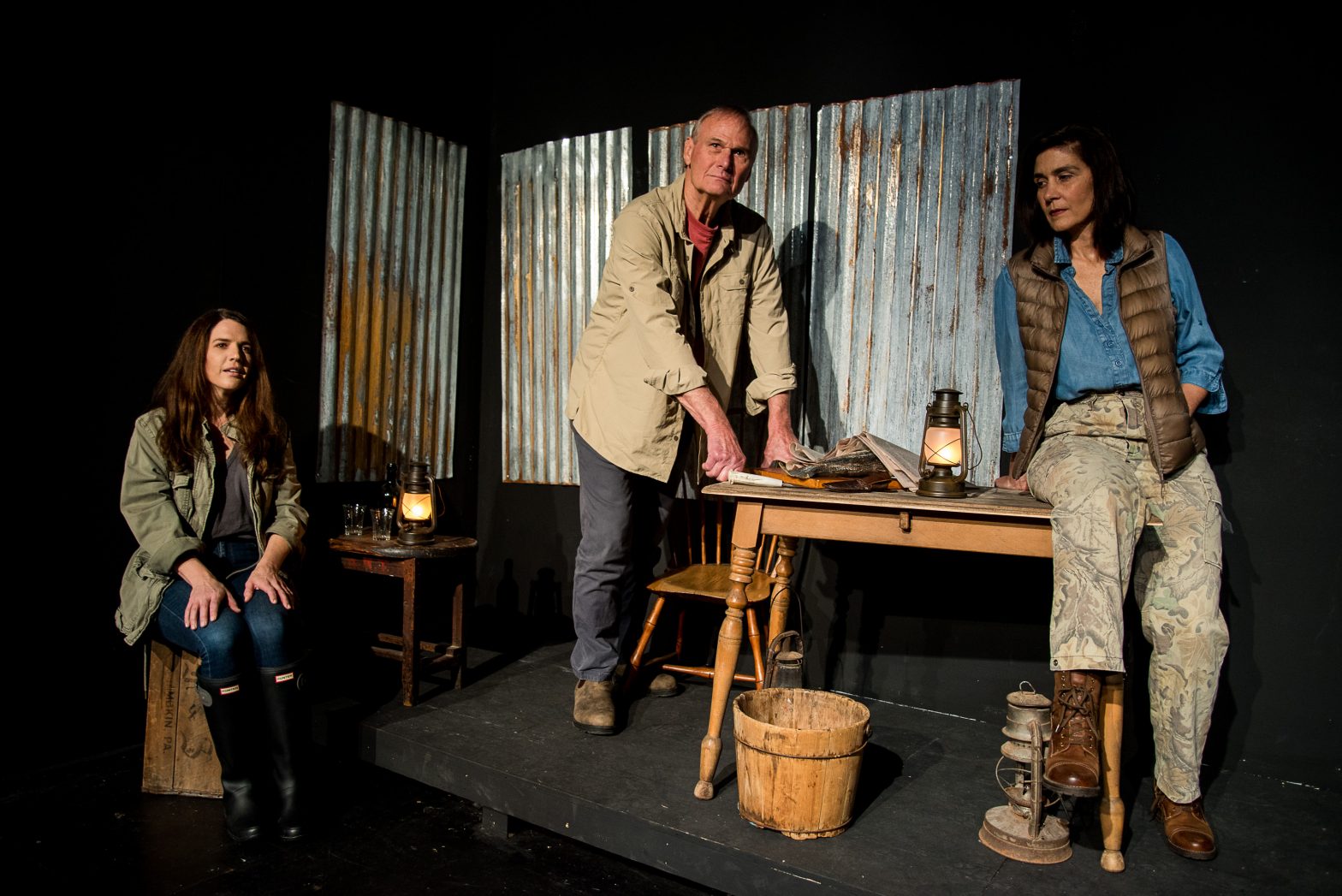A man catches a silver trout, which turns into a “glimmering girl with apple blossom in her hair” before fading away. Though he grows old searching for her, he will find where she has gone, pledges the narrator of William Butler Yeats’ ethereal 1897 poem “The Song of Wandering Aengus.”
This yearning poem’s lyrics open and close Jez Butterworth’s The River, a play that will turn the Live Arts stage into a fisherman’s cabin perched on a cliff above a trout-filled river, from January 20 to February 11.
What happens on this moonless night, says Director Robert Chapel, is “something akin to what one might see while watching an episode of ‘Twilight Zone.’”
Chapel, professor emeritus at the University of Virginia, led more than 50 productions as executive director of the Virginia Theatre Festival (formerly the Heritage Theatre Festival), and ran the UVA Department of Drama for more than 25 years. He says The River is like no other production he has introduced to Charlottesville audiences. “This is a very different play than they are used to me directing,” Chapel says. “I think it’s going to be fun to get their response.”
The River takes place on a single stage set, the remote cabin where fishing enthusiast The Man (Steve Tharp) brings his guest, The Woman (Christina Ball). What appears to be a simple setup is complicated by the introduction of The Other Woman (Caitlin Reinhard)—as well as the unsettling feeling that the chronology of the play is not as it first appears.
“We have found in rehearsal that the play has evolved, and the understanding of the play has evolved, as rehearsal has gone on,” Chapel says. “It’s not an easy play to decipher on the first reading.”
Ball and Reinhard bring what Chapel describes as a “different kind of energy” to each of the two diametrically opposed women, and the entire cast’s understanding of the play continues to grow alongside their characters.
“I try to be more of an editor than a director, because I was an actor once in my lifetime and I never liked a director necessarily standing over me and telling me exactly what to do,” Chapel says. “We’re all working together on this.”
Artistic Director Susan Evans introduced Chapel to The River when she asked him to return to Live Arts to direct it. He agreed before reading the play because he had already fallen in love with Butterworth’s writing while attending New York productions of The Ferryman, a journey to rural Northern Ireland during the Troubles of the 1980s, and Jerusalem, which received international acclaim for its punchy portrayal of modern-day Britain. When he picked up The River for the first time, Chapel was introduced to what he describes as a poignant and poetic new side of the playwright.
It took Chapel several read-throughs to cement his understanding of the story. “When I first read it, I gasped,” he says—but that doesn’t mean he wants audiences to spend their time agonizing over the story’s ambiguity. Butterworth’s intent, Chapel says, is for the audience to encounter The River, not solve it.
The River runs 80 minutes with no intermission, and many people will likely leave the production with questions, and maybe spend the drive home thinking it over. “You just have to play the play for its truths, and play the text, and let the audience decide what they will,” says Chapel.
The River
Live Arts
January 20-February 11
